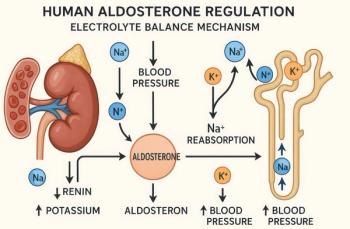
Dark Chocolate a Comfort to Early Blood Pressure
COLOGNE, Germany -- Small doses of daily dark chocolate lowered blood pressure by an amount equivalent to established hypertension diet plans.
COLOGNE, Germany, July 3 -- Dark chocolate may have a small blood-pressure-lowering benefit for early hypertension that is equivalent to other non-pharmaceutical interventions.
So found investigators here who compared the purported blood pressure benefits of white and dark chocolate in a small study. White chocolate was a washout, but dark chocolate was not, with blood pressure apparently lowered by enhancing dilation of blood vessels.
One such intervention that dark chocolate matched is the DASH (Dietary Approaches to Stop Hypertension) diet plan, which has been proven to lower blood pressure, reduce cholesterol, and improve insulin sensitivity, reported Dirk Taubert, M.D, Ph.D., and colleagues, of University Hospital of Cologne, in the July 4 issue of the Journal of the American Medical Association
Among adults with pre-hypertension or stage 1 high blood pressure who consumed dark or white chocolate daily for 18 weeks, those who consumed the dark had significantly lower systolic and diastolic pressures.
They found that at 18 weeks, patients who ate the dark chocolate had a mean reduction in systolic blood pressure of ?2.9 + 1.6 mm Hg (P
Dark chocolate, the investigators said, appeared to work through flavonols in cocoa and their promotion of production of nitric oxide in the vascular endothelium, resulting in smooth muscle relaxation and vasodilation.
The effect is not unlike that of sildenafil (Viagra) or the other inhibitors of phosphodiesterase-5, which also cause relaxation of smooth muscle in the vascular endothelium.
The news is certainly good for chocolate lovers who worry about their blood pressure, but it doesn't warrant a change in clinical practice just yet, cautioned Alice H. Lichtenstein, D.Sc., a professor at Tuft University's Friedman School of Nutrition Science and Policy in Boston, who was not involved in the study.
"The differences themselves, on average, were quite modest," said Dr. Lichtenstein in an interview. "I think if somebody was treating somebody for hypertension, the degree of lowering that was achieved probably wouldn't be quite enough for adequate treatment. I think it's really more useful as far as demonstrating that there seems to be something there, and we have to figure out exactly what the compound is."
In short-term studies, high-dose cocoa consumption (more than 100 g/day), has been shown to improve endothelial function and reduce blood pressure from the effects of polyphenols -- specifically, flavonols, the authors noted.
But whether more modest, long-term consumption of cocoa, in the form of chocolate, would also have a beneficial effect on blood pressure was unclear, the authors said.
So they consigned to eat either dark chocolate or white chocolate for 18 weeks. The patients all had either prehypertension, defined as BP from 130/85 mm Hg to 139/89 mm Hg, or stage 1 hypertension, defined as a pressure from 140/90 mm Hg to 160/100 mm Hg
The main outcome measure was the change in BP after 18 weeks. Secondary endpoints included changes in plasma markers of vasodilative nitric oxide (S-nitrosoglutathione) and oxidative stress (8-isoprostane), and bioavailability of cocoa polyphenols.
Evidence for a beneficial effect on vascular endothelial function came from the fact that the drop in blood pressure was accompanied by a sustained increase of S-nitrosoglutathione by 0.23 + 0.12 nmol/L (P
Newsletter
Enhance your clinical practice with the Patient Care newsletter, offering the latest evidence-based guidelines, diagnostic insights, and treatment strategies for primary care physicians.
































































































































